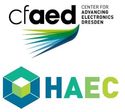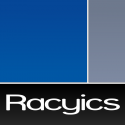2.3 High-Level Synthesis
Date: Tuesday 20 March 2018
Time: 11:30 - 13:00
Location / Room: Konf. 1
Chair:
Selma Saidi, Hamburg University of Technology, DE
Co-Chair:
Daniel Ziener, University of Twente, NL
This session addresses high-level synthesis for easing the development of application-specific designs. First, user-guided optimizations for high-level synthesis based on innovative resource prediction using CNNs will be discussed for an area-reduction advisor. The second paper proposes a look-ahead scheduling scheme to minimize the area for functional units. The final talk presents a direct HLS synthesis path ofsoftware-customizable floating-point cores that does not rely on external libraries or floating-point code generators.
| Time | Label | Presentation Title Authors |
|---|---|---|
| 11:30 | 2.3.1 | (Best Paper Award Candidate) SENSEI: AN AREA-REDUCTION ADVISOR FOR FPGA HIGH-LEVEL SYNTHESIS Speaker: Hsuan Hsiao, University of Toronto, CA Authors: Hsuan Hsiao and Jason H. Anderson, University of Toronto, CA Abstract High-level synthesis (HLS) provides an easy-to-use abstraction for designing hardware circuits. However, standard datatypes in high-level languages are overprovisioned for typical applications, incurring extra area since the underlying FPGA hardware can support arbitrary bitwidths. This area inefficiency can be overcome by enabling the use of arbitrary-width datatypes at the source code level. However, this requires that HLS users spend time and effort on examining all program variables and quantifying their area impact, which can be intractable especially with large, complex programs and time-consuming synthesis. We propose Sensei, an advisor that predicts the post-synthesis area savings brought about by reducing bitwidth and presents users with a ranking of program variables and their area impact. Equipped with a convolutional neural network (CNN)-based predictor, Sensei achieves high area-prediction accuracy and enables rapid exploration of area-saving opportunities. Download Paper (PDF; Only available from the DATE venue WiFi) |
| 12:00 | 2.3.2 | A FAST AND EFFECTIVE LOOKAHEAD AND FRACTIONAL SEARCH BASED SCHEDULING ALGORITHM FOR HIGH-LEVEL SYNTHESIS Speaker: Shantanu Dutt, University of Illinois at Chicago, US Authors: Shantanu Dutt and Ouwen Shi, University of Illinois at Chicago, US Abstract We present a latency-constrained iterative list scheduling type algorithm, FALLS, to minimize the total number of functional units (FUs) allocated, and thus the total area, in high-level synthesis designs. The algorithm incorporates a novel lookahead technique to selectively schedule available operations by allocating the needed FUs earlier or reserving available FUs for scheduling more timing-urgent operations later, such that no additional FU is needed and higher FU utilization is obtained. Further, a fractional search framework is developed to iteratively estimate the number of FUs of each function type required in the final design based on the current scheduling solution and FU utilization, and reiterate the lookahead-based list scheduling with the new FU allocation estimate to further increase FU utilization. Extensive experiments conducted over several DFGs and a wide range of latency constraints demonstrate that FALLS is much more effective than other approximate state-of-the-art algorithms in both number of FUs and total FU area, and has a much smaller runtime. Results also show that FALLS has only an average 5.5% optimality gap compared to an optimal integer linear programming (ILP) formulation, but is 278k times faster. FALLS also performs much better in architectural (FU + mux/demux + register) area, interconnect congestion and number of interconnects than approximate algorithms, and is at most 4.0% worse in them than the ILP method. Download Paper (PDF; Only available from the DATE venue WiFi) |
| 12:30 | 2.3.3 | HIGH-LEVEL SYNTHESIS OF SOFTWARE-CUSTOMIZABLE FLOATING-POINT CORES Speaker: Hsuan Hsiao, University of Toronto, CA Authors: Samridhi Bansal1, Hsuan Hsiao1, Tomasz Czajkowski2 and Jason H. Anderson1 1University of Toronto, CA; 2Intel Corp., CA Abstract Parameterized cores with fixed capabilities are typically used for floating-point (FP) operations on FPGAs. However, such standard cores can be over provisioned or lack specific specializations as required by applications. We consider FP cores described in the C language, synthesized to hardware using the LegUp high-level synthesis (HLS) tool [1]. Their software specification permits straightforward customization to non-compliant variants having superior area and performance characteristics, such as reduced-precision floating point, or cores without full IEEE 754 exceptions support. We create and evaluate the IEEE 754 FP standard cores for the key operations of addition, subtraction, division and multiplication, targeted to an FPGA and compare with widely used optimized RTL FP cores from Altera [7] and FloPoCo [3]. The software-specified HLSgenerated cores are surprisingly close to the optimized RTL cores in terms of area/performance, and superior in certain cases, such as FP division. Download Paper (PDF; Only available from the DATE venue WiFi) |
| 13:00 | IP1-3, 476 | ACCLIB: ACCELERATORS AS LIBRARIES Speaker: Jacob R. Stevens, Purdue University, US Authors: Jacob Stevens1, Yue Du2, Vivek Kozhikkottu3 and Anand Raghunathan1 1Purdue University, US; 2IBM, US; 3Intel Corporation, US Abstract Accelerator-based computing, which has been a mainstay of System-on-Chips (SoCs) is of growing interest to a wider range of computing systems. However, the significant design effort required to identify a computational target for acceleration, design a hardware accelerator, verify the correctness of the accelerator, integrate the accelerator into the system, and rewrite applications to use the accelerator, is a major bottleneck to the widespread adoption of accelerator-based computing. The classical approach to this problem is based on top-down methodologies such as automatic HW/SW partitioning and high-level synthesis (HLS). While HLS has advanced significantly and is seeing increased adoption, it does not leverage the ability of experienced human designers to craft highly optimized RTL, nor does it leverage the growing body of already existing hardware accelerators. In this work, we propose ACCLIB, a design framework that allows software developers to utilize existing libraries of pre-designed hardware accelerators automatically with no prior knowledge of the function of the accelerators, with minimal knowledge of hardware design, and with minimal design effort. To accomplish this, ACCLIB uses formal verification techniques to match a target software function with a functionally equivalent accelerator from a library of accelerators. It also generates the required HW/SW interfaces as well as the code necessary to offload the computation to the accelerator. We validate ACCLIB by applying it to accelerate six different applications using a library of hardware accelerators in just over one hour per application, demonstrating that the proposed approach has the potential to lower the barrier to adoption of accelerator-based computing. Download Paper (PDF; Only available from the DATE venue WiFi) |
| 13:00 | End of session Lunch Break in Großer Saal and Saal 1
On all conference days (Tuesday to Thursday), coffee and tea will be served during the coffee breaks at the below-mentioned times in the exhibition area (Terrace Level of the ICCD). Lunch Breaks (Großer Saal + Saal 1)On all conference days (Tuesday to Thursday), a seated lunch (lunch buffet) will be offered in the rooms "Großer Saal" and "Saal 1" (Saal Level of the ICCD) to fully registered conference delegates only. There will be badge control at the entrance to the lunch break area. Tuesday, March 20, 2018
Wednesday, March 21, 2018
Thursday, March 22, 2018
|











